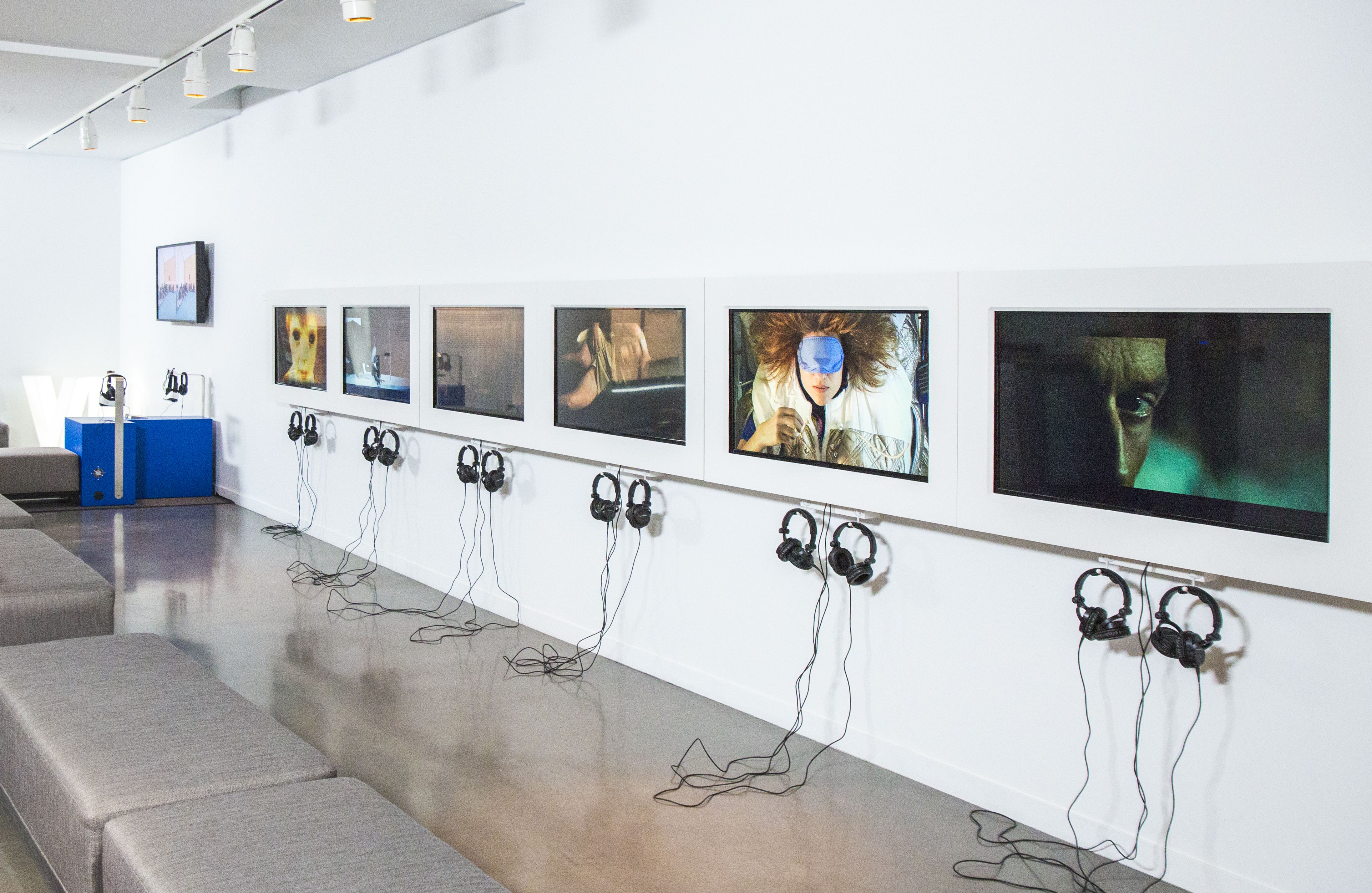Virtual reality is quickly changing the way we tell stories and understand our world
At the Phi Centre, you don’t merely watch the story unfold. You are dropped in the middle of the action, becoming part of the narrative as current social issues from around the world are revealed through inventive accounts.

Wander amongst the survivors of the deadly Ebola outbreak in Liberia. Follow 12-year-old Sidra through a refugee camp in Jordan. Sit across a desk from former U.S. president Bill Clinton.
Following the success of Sensory Stories, an immersive storytelling experience which featured 16 works from artists from around the world, the Phi Centre has continued shattering the conventional notion of how we tell stories by opening their Virtual Reality Garden.
Using cutting-edge technology, the Virtual Reality Garden features four outstanding works that push the limits of conventional storytelling to address unique points of view on current socio-political issues using creative narrative approaches.
With virtual reality, you are not looking through the window as an observer—you have walked through the window and become a participant.
Commissioned by the United Nations, Clouds Over Sidra by Chris Milk and Gabo Arora tells the story of Sidra, a young Syrian refugee, as she guides the viewer through a typical day at the Zaatari refugee Camp in Jordan, home to 84,000 Syrian refugees.
In Nomads: Maasai by Felix and Paul Studios, you are witness to the Maasai’s incredible heritage in the village of Enkutoto, from beadwork to dancing to singing. This piece has no narrator; you are an outsider dropped in the middle of an unfamiliar situation and act as observer, trying to make sense of the sights and sounds happening around you.

You may follow Ebola survivor Decontee Davis in Waves of Grace, by Milk and Arora. Set in Ebola-torn Liberia, the work recounts how Davis uses her immunity from the disease that nearly killed her to visit Ebola patients in the hospital, helping them on their road to recovery.
Or you may travel to East Africa to see with your own eyes how members of the Clinton Global Initiative have helped local communities, be it by teaching them how to use solar power or by giving hearing-impaired children hearing aids. In Inside Impact: East Africa by Felix & Paul Studios and M SS NG P ECES for Matter Unlimited, former U.S President Bill Clinton articulates the difference his initiative has made.
The Virtual Reality Garden raises interesting questions regarding virtual reality and how it can be used to report on distant issues that are hard to grasp. Humans understand issues through storytelling. The troubles and sacrifices of a world across an ocean mean nothing unless we have a character to associate them with. With characters, we understand the consequences.
The Virtual Reality Garden gives us just these characters, to walk us through the issues and help us understand large and complex phenomena, such as the lives of Syrian refugees, a little better. These 21st century problems are being understood through 21st century technology.
The Columbia Journalism Review is already hailing virtual reality as the next journalism frontier, encouraging newsrooms to start dabbling in the technology if they haven’t already, especially considering how consumer adoption of virtual reality is on the horizon. Through virtual reality, audiences can follow journalists to remote places which they normally would never have been granted access.
Despite its space-altering qualities, it’s not perfect. The headsets can be heavy and clunky, tilting forward if not adjusted properly. Glasses do not go well with the experience either, as they’re pushed up to the bridge of your nose. However, the physical discomforts do not negate the upsides of the technology.
In a Ted Talk from March 2015, director of both Clouds Over Sidra and Waves of Grace Chris Milk explained how virtual reality films can be used to leave a lasting impact on users, changing minds with the stories they tell. Milk asserts that virtual reality has a powerful effect on people, drawing on emotions and inducing empathy in the viewer.
In collaboration with the United Nations, Milk has been showing his works to those who have the power to change his subjects’ lives. Documentaries exploring pollution in India, disaster relief in Nepal and climate change in China and the Amazon are scheduled for release at a later date.
Milk believes that virtual reality is more than just a machine—it’s a way to be more human. “It’s not a video game peripheral,” he said in his Ted Talk. “It connects humans to other humans in a profound way that I’ve never seen before in any other form of media. And it can change people’s perception of each other. And that’s how I think virtual reality has the potential to actually change the world.”
To see these space-altering works for yourself, head over to the Virtual Reality Garden at the Phi Center, open now through March 31. Admission is free.



